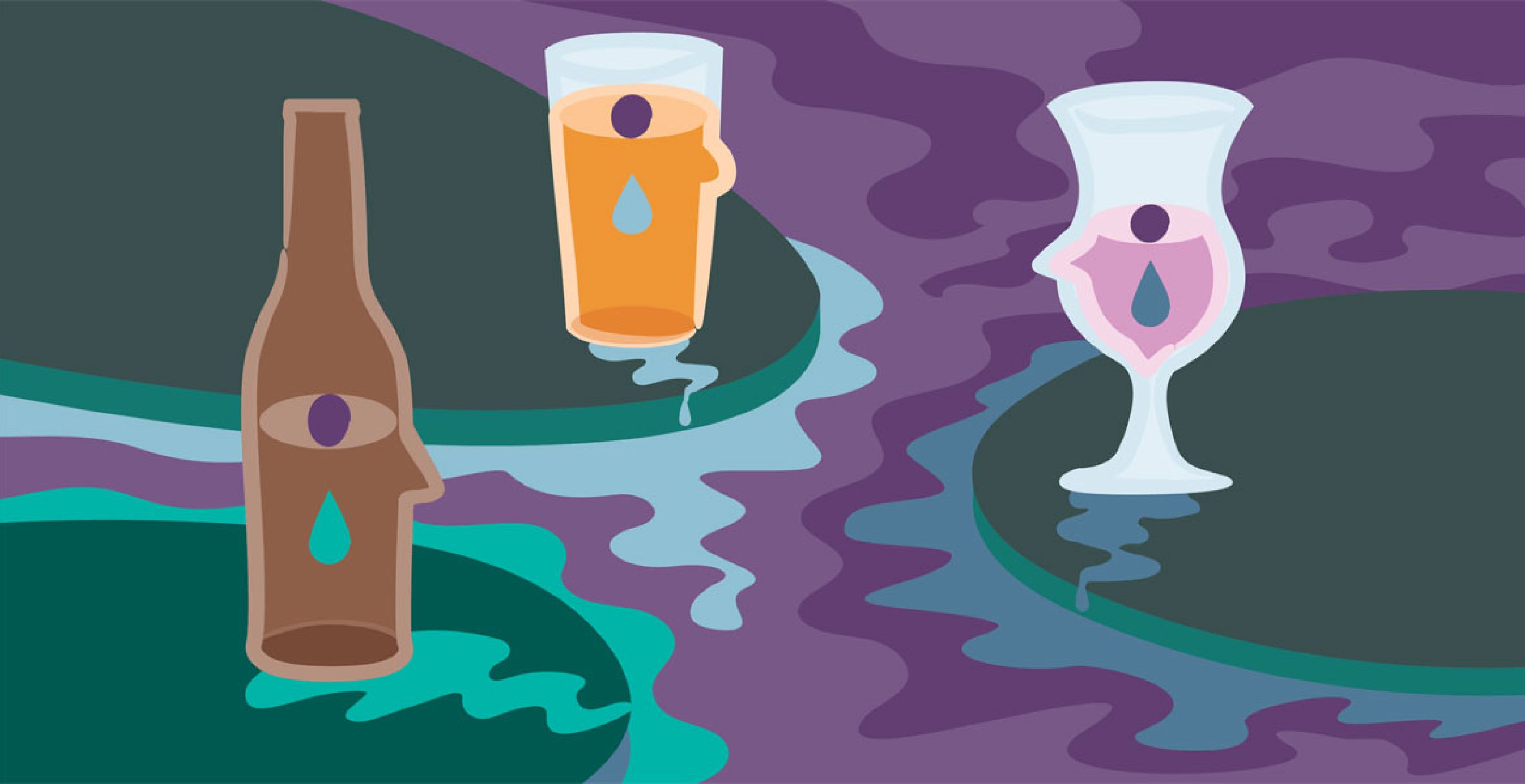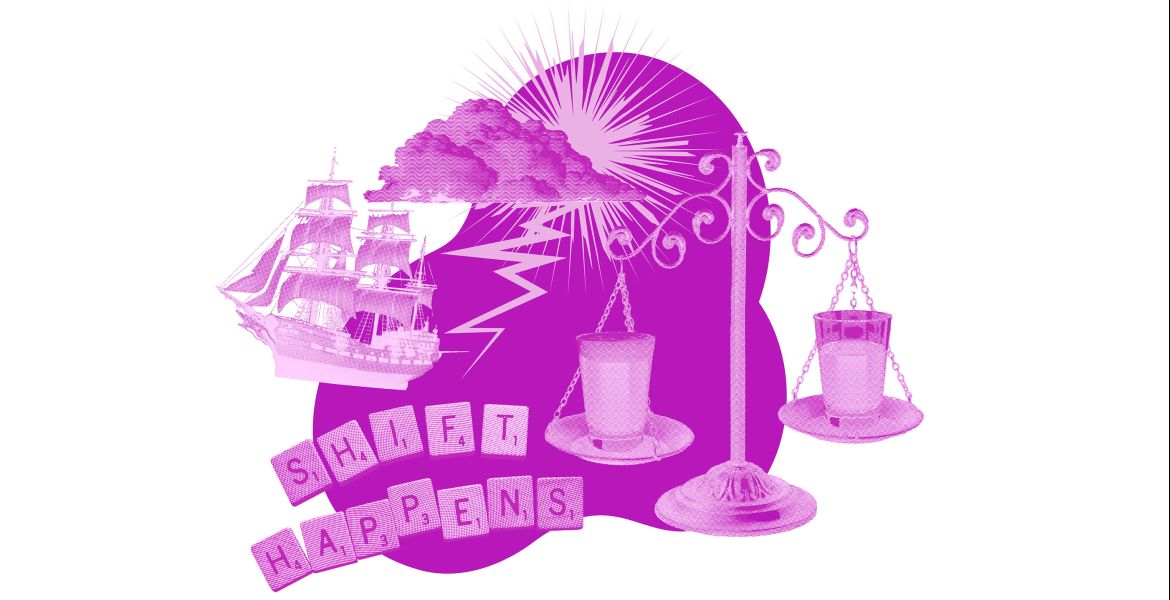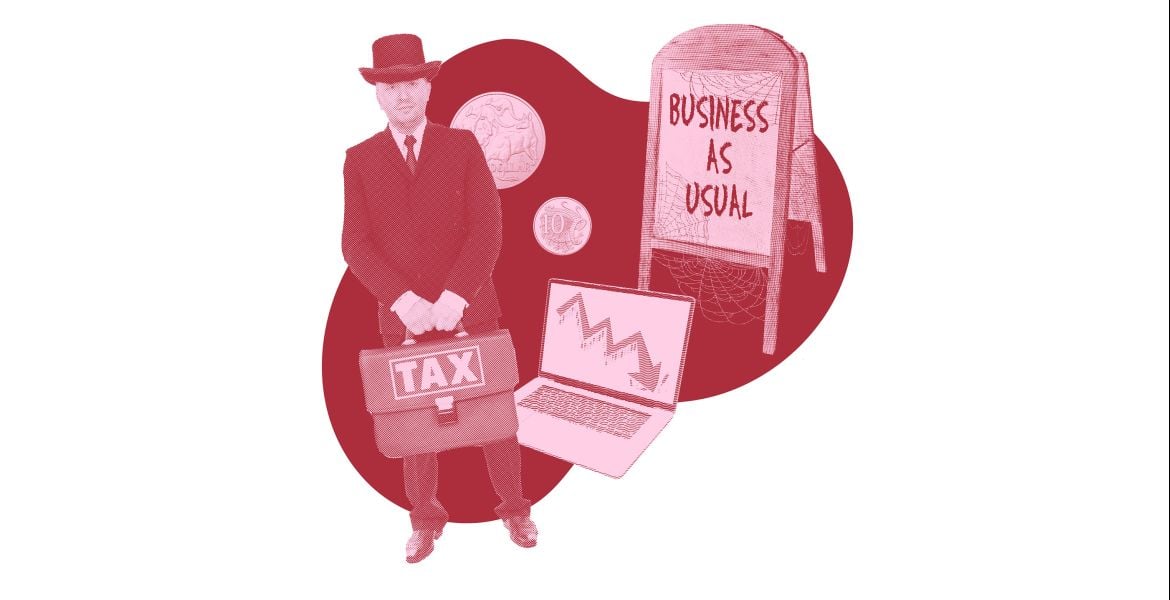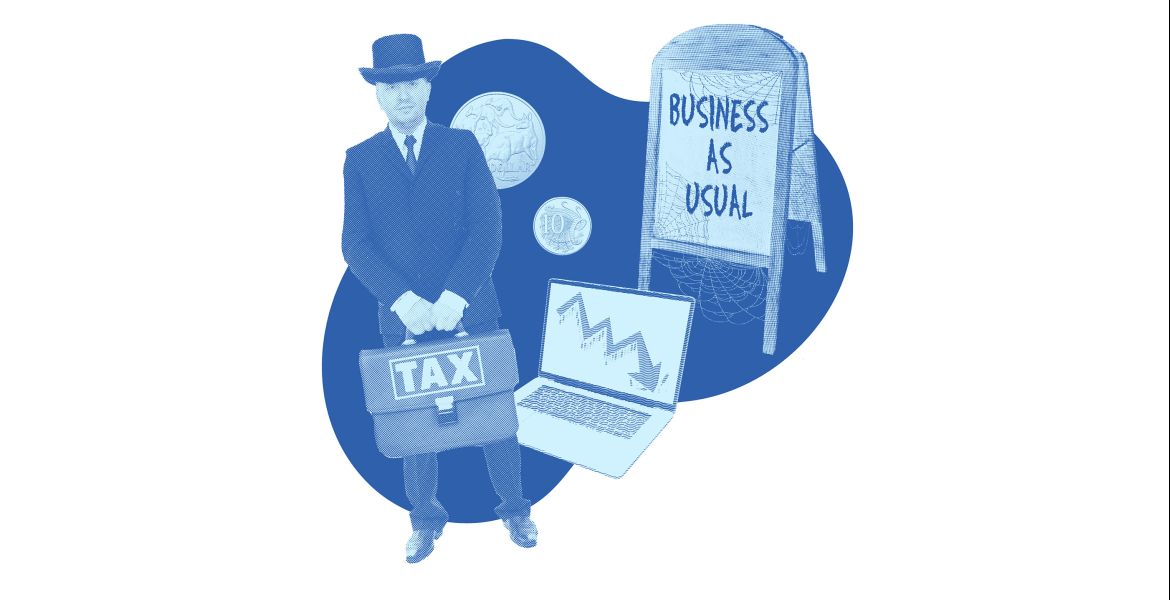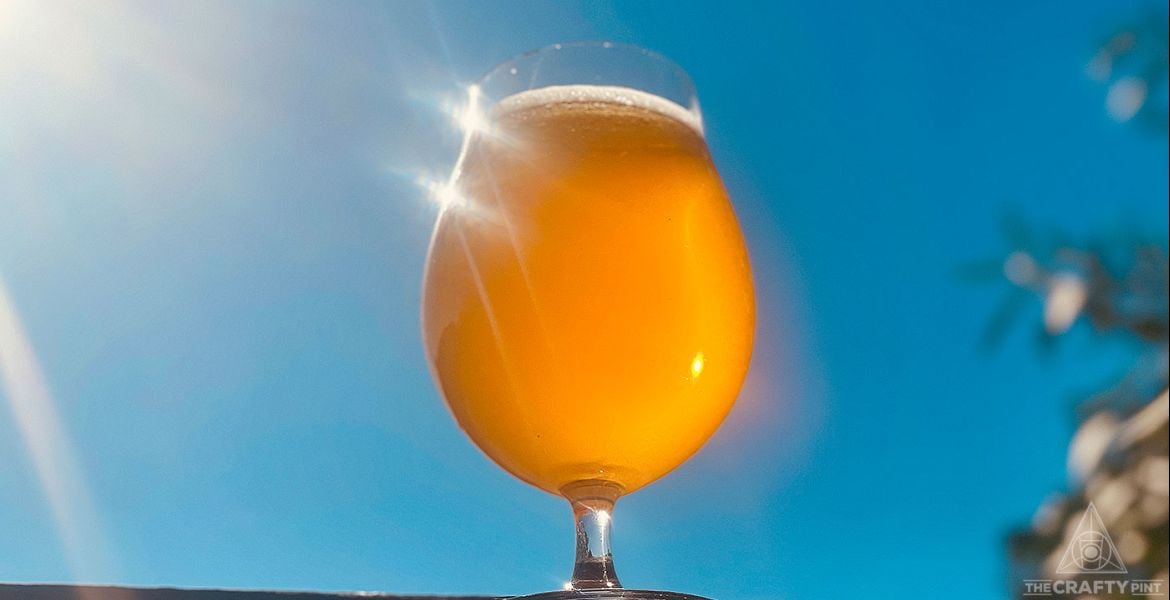“Broad strokes – it's shit, feels very flat, cut off, isolated…”
As I was figuring out how to write this article, I asked members of The Crafty Pint team – a number of whom live in locked-down Melbourne – to share privately how their mental health had been affected during the COVID-19 pandemic.
One team member said COVID hadn’t affected them too much, but added: “I did find myself drinking more and exercising less.”
Someone who hasn’t struggled with mental health in the past referred to the “stress and dread brought on by daily tough news [that] makes it hard to concentrate on almost everything and makes my emotions fly everywhere.”
Another who is experiencing mental health difficulties for the first time noted that, “just admitting to it makes me feel extremely uncomfortable.”
A team member who’s had short, sharp bouts of depression in the past described the last few months as follows: “It’s as if depression is like a small weed that grows in the garden. When it gets a bit too big, I notice it and remove it. COVID lockdown is like someone has put a greenhouse around the weeds so it grows better, bigger and quicker.”
Another described the instability of it all – “the oscillating moods that come with the ever-changing situation.”
Yet another, who isn’t facing the same difficulties as others, confessed to having a “sort of survivor’s guilt.”
And, without wanting to sound overdramatic, I’m writing this now with an elevated heart rate, a disproportionate amount of stress, and a deep loneliness as closed borders separate me from my friends and family.
I also suffer from a case of the shoulds: “We’re in a global crisis; I should know that things will be different.” “I’ve had depression and anxiety before; I shouldn’t be surprised by these feelings.” “I’m not in the worst of it; I should be grateful, and cope better than this.”
These are the experiences of people in just one business. What about the hundreds of breweries? The thousands of venues and bottleshops? The tens of thousands of people working in and around the Aussie beer industry? How are they coping – or not coping – during this time?
Mental health in the beer industry
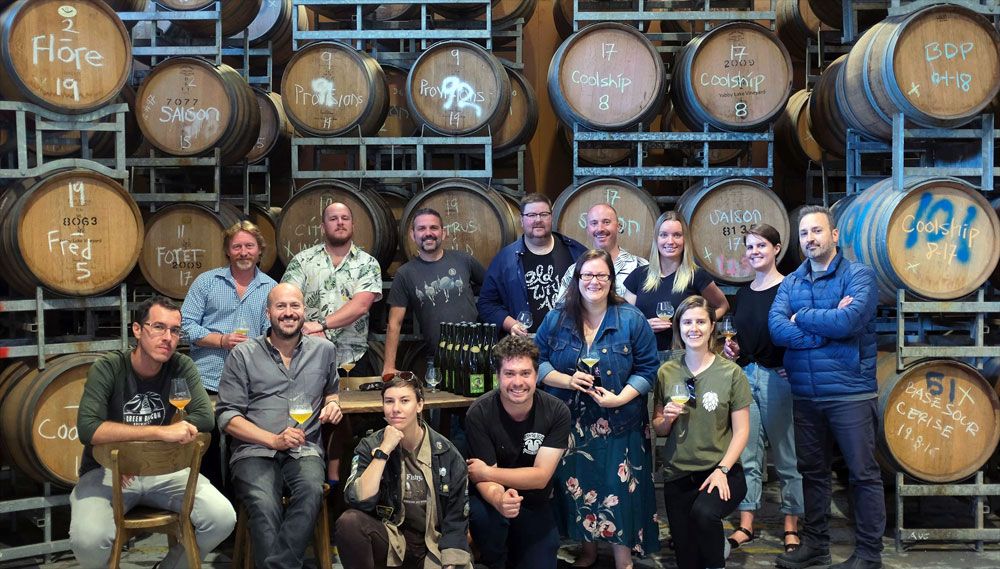
In many ways, this is not a new conversation. In an industry where the constant pressure on business owners can take its toll, hospitality staff feel the high intensity of their workplaces, and it’s easy to turn to alcohol more often than is healthy, there is a growing awareness of the challenges people face when it comes to mental health.
But, as many of us have seen in our own lives, and as we’ve explored in some of our Postcards from the Edge stories over the past five months, those challenges appear to be more and magnified in the time of COVID.
A month-by-month study coming out of Swinburne University of Technology has been surveying Australian mental health and wellbeing during COVID-19, and the research is showing that current levels of depression, anxiety and stress are far above the Australian norms.
Since things are worse than they normally are, it’s important we talk about it more than we normally do.
Peter Sherwood, who manages North Fitzroy’s iconic corner pub The Empress, has already noticed that people in the industry are talking more openly about what they’re dealing with than they have in the past.
“In my career, I’ve certainly seen a change in that for the better. I’ve been at The Empress for five years now and we’re mindful of it and try to work in an environment that is conscious of mental health and the struggles of mental health.”
Peter’s experience isn’t an isolated one. Businesses around the country are trying to figure out what it means to care for their workers in this time.
The Independent Brewers Association (IBA) sees it as part of their role to assist their member businesses. Rich Adamson, founder of Young Henrys and IBA director, says the wellbeing of a business is only as strong as the wellbeing of its people.
“Before COVID hit, we were talking about what we could do as an industry body to help our members with the wellbeing part of their business," he says. "Larger organisations are recognising that the more focus they put on that, the better their staff are – physically, mentally – the better they perform.
“Whilst it’s an important thing for people’s wellbeing, it’s also good for business.”
During the first lockdown, Rich co-ordinated a virtual Trade Hub (which is still available to view here) aimed at business owners and hospitality workers to help address some of the stresses and mental health struggles rising from COVID.
“It’s something we’ve been talking about. Whether we’ve fully been equipped to help is another thing. But we’ve called on people who are experts.”
MENTAL HEALTH IN THE TIME OF COVID-19
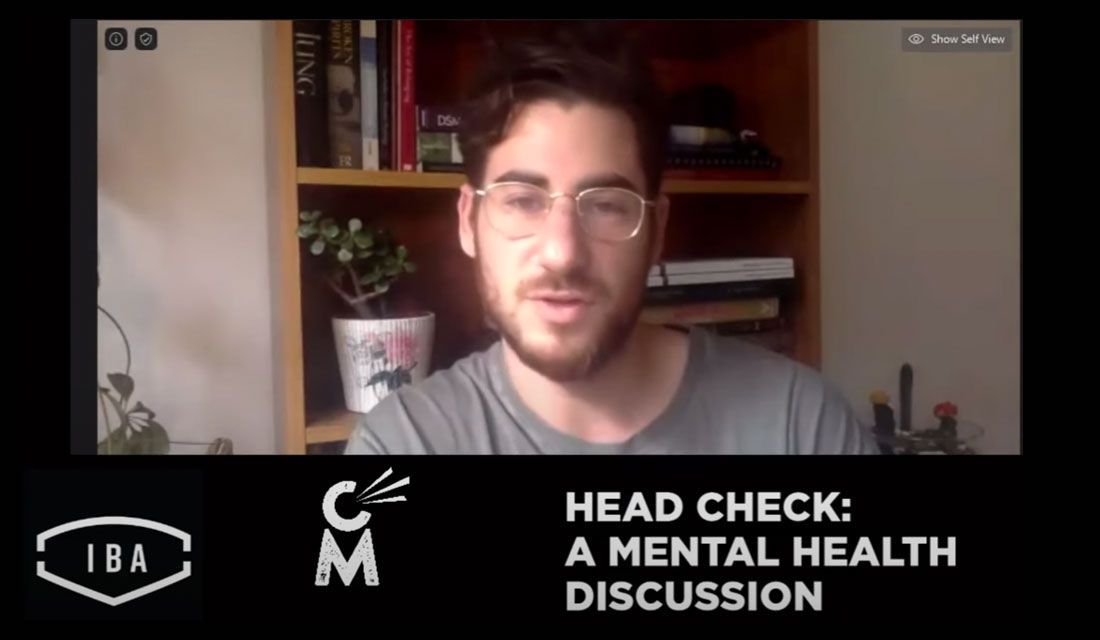
One of those experts is Dr Jarrod White (pictured above during the Trade Hub panel), a clinical psychologist working at The Mind Room in Melbourne. As well as having clinical experience in treating anxiety and depression, Jarrod works with people in addressing issues of identity, isolation, loss of connection, and existential crises. And, while many industries have seen business drop off during COVID, Jarrod’s been as busy as ever.
"It feels like there is this general anxiety around,” he says. “There’s obviously huge financial fears that people are dealing with, job security fears that people are dealing with… health anxiety that a lot of people are struggling with – anxiety around whether they’ll actually contract COVID or not, or whether people are doing enough to minimise what’s going on.”
He’s noticed people are even feeling anxious about the idea of their mental health deteriorating, particularly when things like gym closures, restrictions on going outside, and reduced social contact are taking away some of the best self-care tools.
But, in all of his observations, there’s one word that Jarrod keeps returning to: uncertainty.
“Uncertainty is one of the most scary things we face as people,” he says. “[It’s] the way we’re wired – we make sense of things so it’s easier for us to navigate the world.”
And in the time of COVID, when things are changing week to week – from case numbers to whether we can travel interstate to whether we can go to the pub or not – it’s hard to make sense of anything.
“We don’t plan for uncertainty – that’s the whole point. We plan for certainty. And as soon as something goes that’s not according to the certain plan, we freak out.”
This is something Jayne Lewis, co-owner of Two Birds Brewing, has experienced firsthand. Having spent the past few months recalibrating her business – and her life – through the first wave of restrictions, the news of Melbourne’s stage four restrictions hit Jayne hard.
“I was literally sitting in the hairdresser crying the next day. Cause I was just like, ‘Holy crap. What even is this?’," she says.
“I don’t know that I necessarily have allowed myself to think about Lockdown 2.0, so when it happened, I was just thrown completely off. And spiralled for a good 24 hours.”
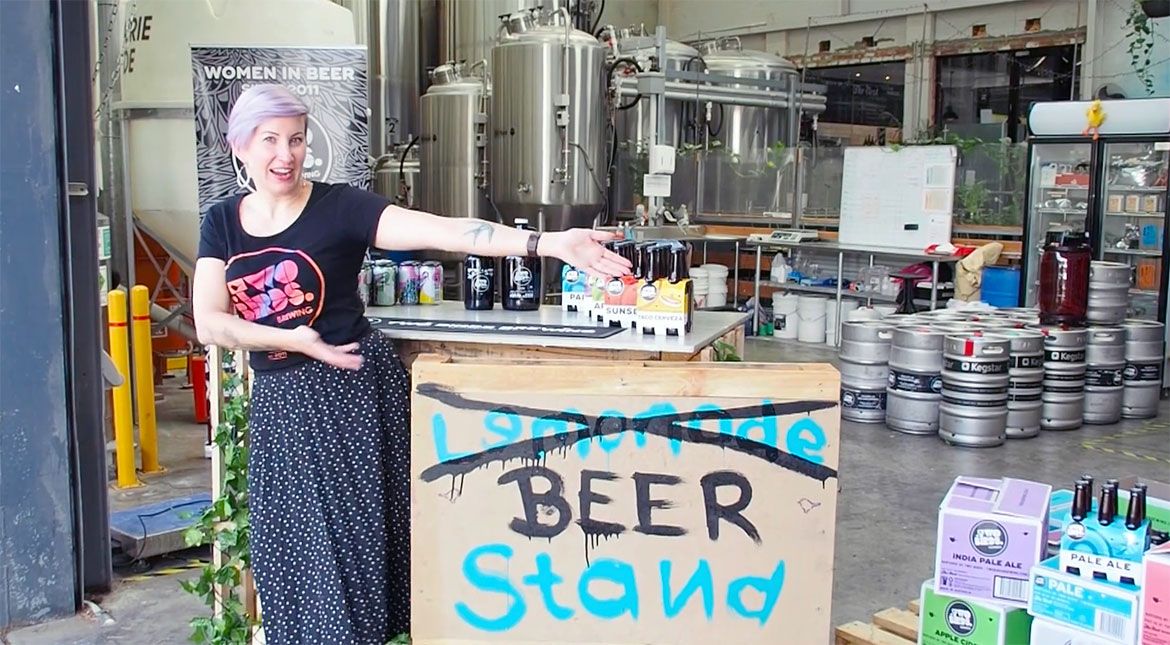
Jayne found that when she spoke to her team at Two Birds she wasn’t the only one struggling to deal with the changes.
“A lot of us just felt like a punch in the gut, felt like you were reeling and didn’t really know what to do and how to cope.
“The uncertainty has had an impact on different members of our team, but across the board everyone is down. There’s not a lot to get really excited about at the moment.”
This "across the board" feeling isn’t limited to Two Birds. One of the strangest elements of COVID is that there’s an element of universality to the experience (which is why it’s being compared, in some ways, to a world war) – we’re all dealing with similar things at the same time, and correspondingly there are some trends across how we’re being affected emotionally.
Alongside the anxieties described above, Jarrod has noticed countless people being affected by low mood, especially in areas where lockdown restrictions are in place.
“The feelings of loneliness [are] a bit scary for people. You’ve got the anxiety, but you’ve also got this low effect, depression kind of feel that you see in people – this loneliness, and lack of motivation, and struggling to feel connected.”
As seen in the survey of Crafty Pint team members, these feelings can impact different people in different ways. For someone who hasn’t struggled with mental health before, the unfamiliarity and surprise of these intense emotions can bring an extra layer of concern. For others, the distress brought on during COVID can exacerbate pre-existing mental health difficulties.
In the midst of Victoria’s strict lockdown, where there’s growing fear over the future of hospitality and social isolation is a very present hardship, Peter echoed some of these thoughts as aligning with his own experience.
“We’re in a period of what feels like forced loneliness, so people who were managing their mental health problems are really at risk now.
“A few of those feelings will be brand new to some people and they should be aware of them.”
Peter himself is not a stranger to these feelings – he’s experienced depressive episodes in the past. But since he hasn’t struggled with mental health difficulties for the past six or seven years, he was still somewhat surprised by the dark emotions that seemed to take over when the restrictions tightened.
“At the start of this second lockdown I slipped into some really depressive habits,” he says.
“Negativity, struggling to get out of bed are all things that have become really foreign to me.”
Turning to drink

One of the wise philosophers of our times said: “Never drink to feel better; only drink to feel even better.” But we know some of us look at alcohol as a coping mechanism during difficult times, and COVID has shown that to be the case.
In a study conducted by Australian National university, 20 percent of Australians who said they drink alcohol also self-reported that their consumption has increased since the spread of COVID-19 in Australia. Some of the factors associated with increased drinking during this time were having a child caring role, the loss of a job or a decline in work hours, and psychological distress. (In contrast, 27 percent reported they’d been drinking less during COVID, though the reasons for this were not explored.)
While we in the craft beer industry are generally excellent at using beer to feel "even better" – as a luxury product, a social leveller, a catalyst for connection and community – we know we can also sometimes lean on it in unhelpful ways, especially when we’re struggling.
Back in March, when COVID seemed to turn the world upside down and the ensuing restrictions put pressure on Two Birds, Jayne found herself among those using alcohol to cope.
“The first lockdown, I just drank a lot,” Jayne admits.
“It just felt like the way to handle the day or the way to rest. It felt like the way to disconnect from things… ‘I’ve finished, I need to just shut my brain up. I need to use this as a way to unplug.’ I think that was my personal reason.”
And she knew she wasn’t the only one.
“I was definitely finding that, within my circle, people seemed to be drinking more – people in the industry, and in my friend circle.
"Or [maybe] they were just sharing that they were drinking more. It definitely seemed like a big common coping mechanism that we were seeing around the place.”
Jayne also noticed a spike in online sales through the Two Birds website, which led her to realise it was likely others were drinking more than usual as well.
“So I guess, anecdotally, and then a bit through our own sales as well, it seemed like it was a thing that was happening.”
Taking Ownership
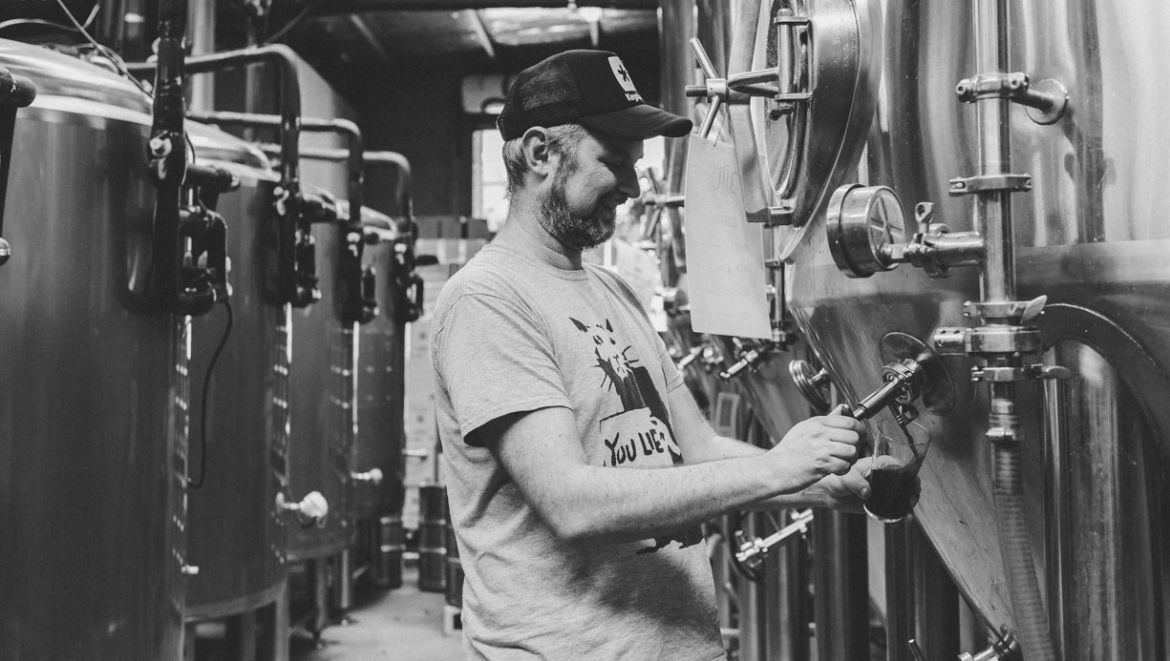
While beer lovers across the country are rallying to keep the local beer industry alive, it’s no secret the wider ecology of which beer is just one part has taken a big hit. Between the way hospitality revenue evaporated almost overnight, the costs and stresses involved with ensuring business practises are compliant with new restrictions, and the way businesses have had to pivot just to survive, the pandemic has created a constant threat hanging like a bad smell in the air.
And so, while many of the challenges of COVID don’t discriminate, there are some special burdens that fall on the owners of businesses.
“That was probably the most stressful time I have ever experienced,” Jayne says, reflecting on the imposition of restrictions in March.
“That looming uncertainty of, ‘Gosh, what’s going on?’ Obviously, seeing everything happening around the world, seeing the impact of it and knowing that it was coming but not knowing anything about what that could look like. Just feeling like you’re standing there while a tidal wave’s about to wash over you.
“I felt really small, really insignificant.”
In this time, Jayne wasn’t only left thinking about herself, but also about her employees, and how this tsunami could affect them.
“Knowing that you’re the life raft for twenty other people as well… you have all of these people that you are responsible to.”
While she was struggling personally with the uncertainty just as everyone else was, it fell upon Jayne to create a new, flexible plan just to keep her business afloat. The way she approached this was to sit down with a couple of members of her team the day after restrictions were first announced and to hypothesise different ways they could respond and adapt.
“[It was] the only way I knew how to deal with it,” she says. “It was like, ‘OK, we don’t know what this looks like. There are no guidelines around it, obviously. So what could it look like, and what could we do in those scenarios?’
“It didn’t remove the uncertainty of it happening, but it removed the uncertainty of what I would do if it happened. So I guess I took control of my part of that, which put my mind at ease.”
While it takes time and energy and patience to care for staff members even in normal times, Rich points out these needs are multiplied during a period of instability, as he’s seen at Young Henrys.
“We’re having to be more agile than ever before,” he says. “In my personal experience, we’ve seen staff members suffering with anxiety and having difficulty adjusting to new situations. And that’s taking our management team a lot more time to chat, talk to people – ‘How’s it all working?’, and really have space with them and communicate with them a lot more.
“I think checking in with people is the most important thing you can be doing. Ask how people are feeling. Talk them through it. You don’t have to have all the answers. If they are struggling, there are resources available.”
It’s warming to hear how owners and managers take responsibility for their employees, and genuinely care about their wellbeing. However, leaders need to take care of themselves as well. With the extra weight on their shoulders at the moment, it’s more important than ever they seek support from others.
“We do take a lot on ourselves. And quite often we have to have a very public face about how things are going; you’re quite stoic," Rich says.
“So it’s about having peers you can talk to. I know with the Inner West Brewers, we’ve got a little WhatsApp chat, just trying to keep up to date with everything that’s happening… but also just to have a chat to each other and see how we’re going.
“That’s the great thing about the craft beer industry – whilst we’re all competitors, it’s more collegial than that. And we do like hanging out with each other under normal circumstances!
“The great thing about beer is it brings people together.”
In part two of this mini-series, Mick looks at the steps people can take to help them manage the unique challenges and stresses presented by the pandemic.
UPDATE 12/08/20: On August 12, the Victorian Government announced a $26 million program to address the mental health needs of sole traders and small businesses. Details are available here.
For support surrounding mental health issues, you can contact:
- Lifeline on 13 11 14
- Suicide Call Back Service 1300 659 467
- Beyond Blue on 1300 22 46 36
- MensLine Australia 1300 789 978
Additional reporting by Will Ziebell.



